Description
ABSTRACT
Aggressive Tax Avoidance in Nigeria: Lifting the Corporate Veil as an Anti-Avoidance Tool
Dr. Derek Obadina
Aggressive tax avoidance strategies deployed by multinationals in the face of the failed statutory anti avoidance rule stated in section 22 of the Companies Income Tax Act, founded on a dichotomy between form and economic substance of transactions and exploitation of statutory infirmities, are a significant factor in accounting for the massive gap between potential and actual tax revenues in Nigeria. This should be a matter of concern because it distorts fairness, threatens the integrity of the tax system and ultimately undermines development. Drawing on developments in the UK and India, it is argued that the courts should be prepared to intervene by deploying the doctrine of lifting the corporate veil, alongside purposive interpretation as an anti-avoidance tool.
INTRODUCTION
Consistent with a huge body of literature in the matter,1 the National Tax Policy identifies tax avoidance as a major source of leakage from the tax system and goes on to prescribe legislative and administrative action to block the loopholes that feed the phenomenon.2 At a time when the country’s oil revenues are receding and the debt profile of the country is deteriorating, this prescription is salutary. However, given the long established principle that taxpayers are entitled to structure their transactions to minimise tax liability3 and the large number of statutory provisions that enables taxpayers to reduce or avoid tax liability in specified circumstances, it is reasonable to conclude that what is being targeted for remedial action is not the proper use of tax saving opportunities, but, rather, tax avoidance that seeks to “reduce the incidence tax borne by an individual taxpayer contrary to the intentions of parliament”4 otherwise known as ‘aggressive tax avoidance’.
Companies, particularly, multinationals are major practitioners of tax avoidance. It is not just that such companies incur significant expenditure on the purchase of bespoke and mass marketed, ‘off the peg’ tax avoidance products as part and parcel of the way they carry out their business operations,5 but also that the companies create and interpose other companies specifically for the purpose of giving effect to tax avoidance strategies.
*Ph.D, B.L. Solicitor of the Supreme Court of England and Wales and Associate Professor, Faculty of Law, Lagos State University
- Weyziq, F, ‘International Finance and Tax Avoidance via Dutch Special Purpose Entities’ (Paper presented at the Research
Seminar, Radboud University Nijmegan, Netherlands on 21 October 2013); Adebisi, J F and Gbegi D O, ‘Effect of Tax Avoidance and Tax Evasion on Personal Income Tax Administration’ (2013) 1 American Journal of Humanities and Social Sciences 125; Okorodudu M.T, ‘Measures Against Tax Evasion and Avoidance: Some Equity Questions and Suggested Reforms’ (Paper presented at the 15th Annual Senior Staff Conference of the Inland Revenue Department on Taxation as an instrument of Economic Development on 4-6 December) 25; Owolabi, B Tax Avoidance, Capital Flight and Poverty in Nigeria: The Unpatriotic Collaboration of the Elite, Multinational Corporations and Accountants (2006) - National Tax Policy (April 2012) Federal Ministry of Finance, 20
- See Monroe H, Fiscal Fitness: Tax Avoidance and the Duke of Westminster, Current Legal Problems, (1982) 39. See also the
comments of Lord Steyn in IRC v McCuckian [1997] STC 908; also Asuzu C, Remember Lot’s Wife: The Interpretation of Tax
Statutes. accessed 4 June 2014 - Lord Templeman ‘Tax Avoidance and the Law’ in Andrian Shipwright (eds), (Kay Haven, London 1997) 1
- D.A. Obadina, ‘Tackling Aggressive Tax Avoidance in Nigeria: An Agenda for Reform’ (2015) 1 Ife Juris Review 38

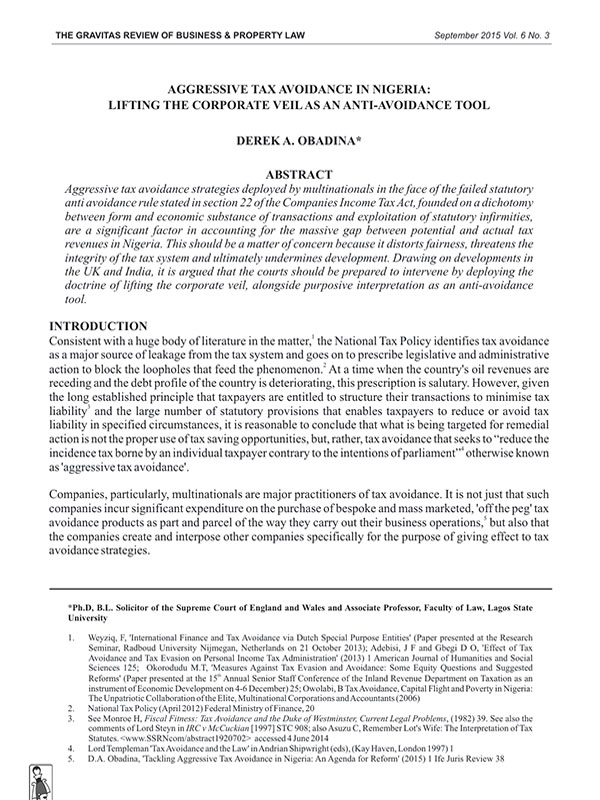
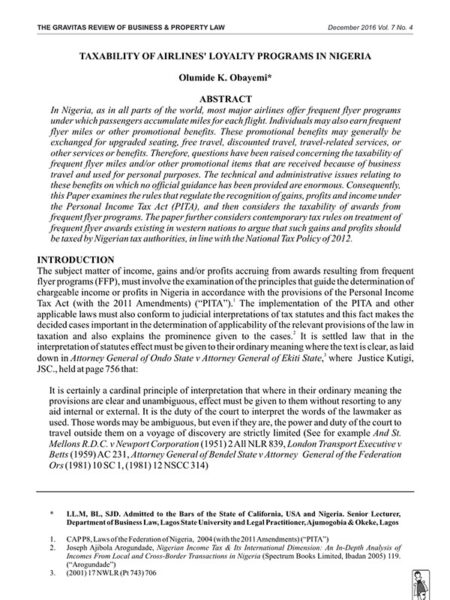
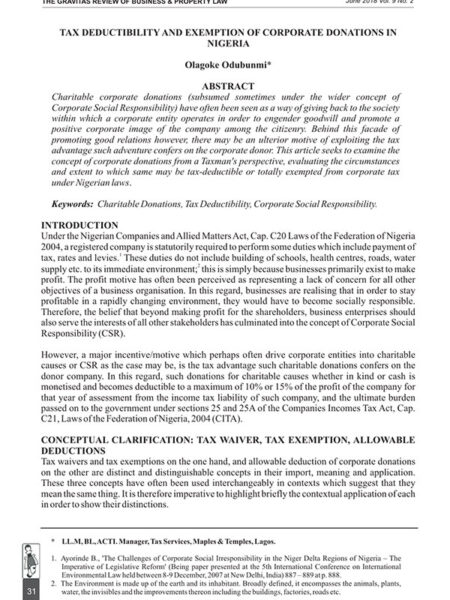
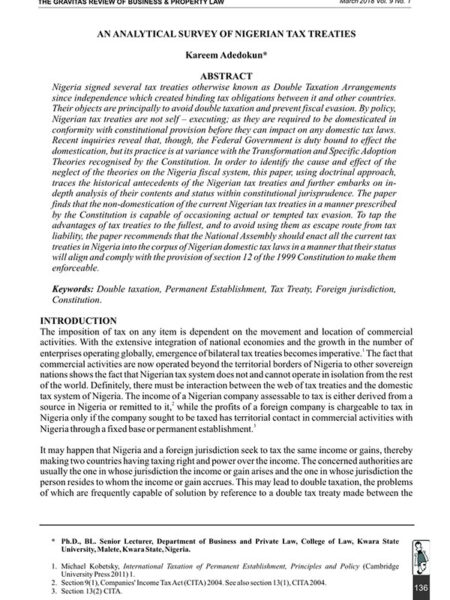
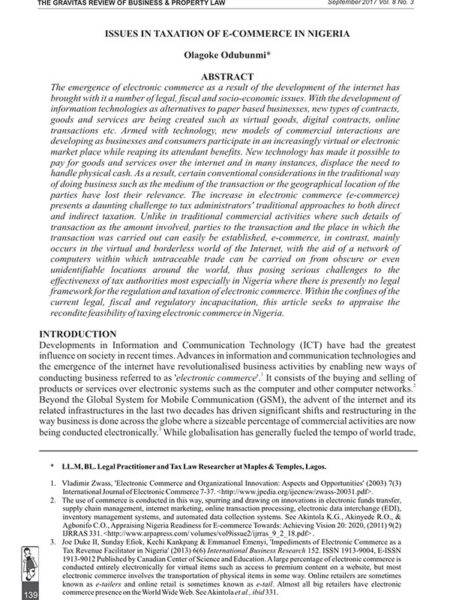


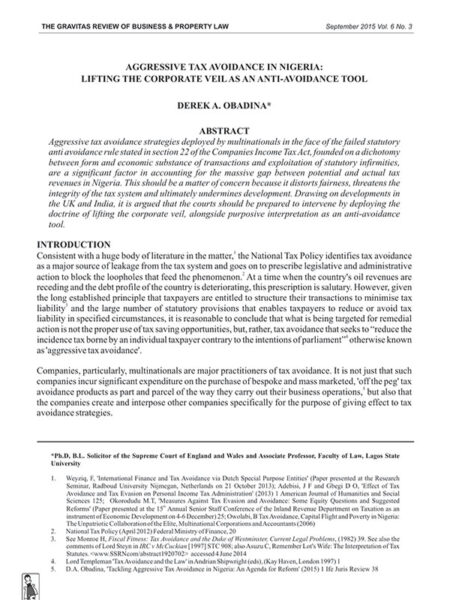
Reviews
There are no reviews yet.